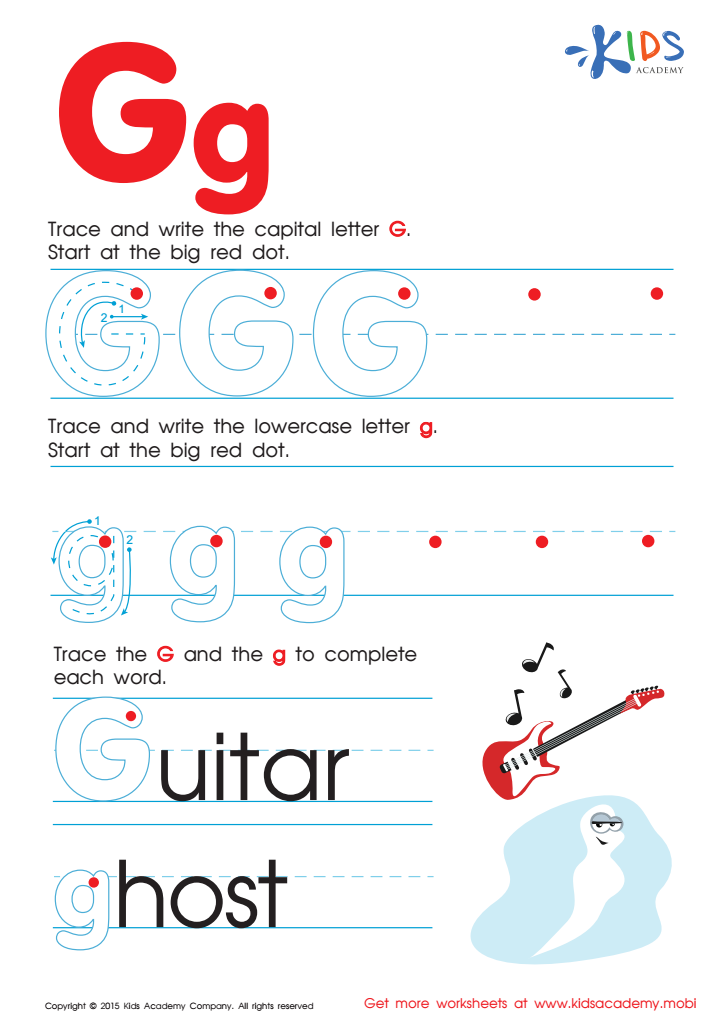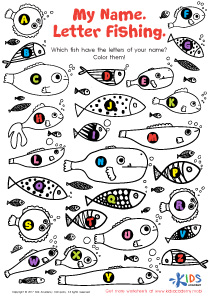Letter formation ABC Order Worksheets for Ages 3-9
3 filtered results
-
From - To
Explore our engaging Letter Formation ABC Order Worksheets designed for children ages 3-9! These worksheets are perfect for helping young learners develop essential letter recognition and writing skills. Each worksheet encourages children to practice forming letters while organizing the alphabet in the correct order. With colorful illustrations and interactive activities, children will find joy in learning letters, enhancing their fine motor skills and memory. Parents and teachers can utilize these resources to create a fun, educational experience that fosters confidence in writing. Download your free worksheets today and watch as your child becomes a proficient letter writer!


Letter A Tracing Page


Letter P Tracing Page


Letter G Tracing Page
Letter formation and ABC order are essential foundational skills in early literacy for children aged 3-9. Letter formation helps children develop fine motor skills, which are crucial for writing. Properly formed letters promote legibility and confidence in writing as children begin to communicate their ideas.
In addition, understanding the alphabetical order is fundamental for text organization, allowing children to sort and retrieve information effectively. This skill is vital for reading and navigating resources such as dictionaries and encyclopedias later in their education.
For parents and teachers, fostering these skills aids in creating a strong literacy foundation. Engaging in activities that focus on letter formation and practicing ABC order can make learning fun and interactive. It encourages a sense of achievement and lays the groundwork for academic success.
Moreover, focusing on these early literacy skills helps identify any potential learning issues early on, allowing for timely interventions. When parents and teachers work together to emphasize letter formation and the importance of the alphabet, they support children's overall cognitive development, boosting their literacy skills and nurturing a lifelong love of reading and writing.
 Assign to My Students
Assign to My Students




















